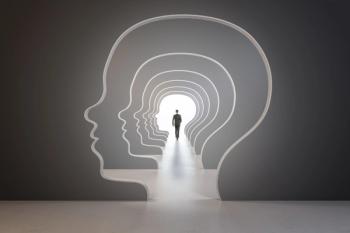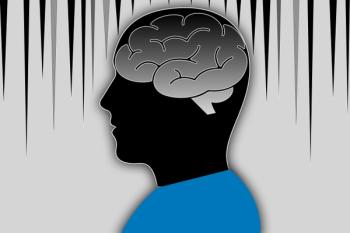
- Vol 38, Issue 7
COVID-19 Mental Health Long Haulers
Three women describe the massive impact COVID-19 has had on their lives.
When Dawn Sims picks up her curbside groceries, she sanitizes her packaged products with chlorhexidine, a medical-grade disinfectant. Otherwise, she only eats fresh foods that can be washed, zapped in the microwave, or peeled.
Sims, aged 50 years, resides on a 20-acre property with her husband and mother. The property consists of 2 buildings, 30 ft apart. Sims and her husband live in one; her mother, aged 79 years, lives alone in the other. She loved being close to her mother—until
“I live in terror that I’m going to kill my mother,” Sims said. “That’s my biggest fear: I’m going to bring COVID home to her.”
At the Arkansas Industrial Traffic Association, Sims manages the company’s finances in person for security reasons. Seven individuals work in the office, and masks are not required at their desks, which scares her.
Sims’s concerns are widely shared. Between April and June of 2019, nearly 11% of Americans experienced anxiety and/or depression, according to the
“
The definition of mental long haulers, especially those with mental health issues, is still developing.
From Nervousness to Mental Health Disorder
What is really happening with these patients? To find out, Psychiatric TimesTM followed 3 women—Dawn Sims, Heather Scott, and Lisa Germain—from November 2020 to February 2021, the time frame of the pandemic’s second US surge. Although three women is a small sample size, the
Mainly, they shared a common distress about the persistent anxiety. In December 2020, that concern overwhelmed Sims. “I am 100% certain that I am going to get it, and I am 100% certain that I’m going to give it to my mother,” she expressed.
From the time Sims was young, she was “a worrier,” but COVID-19 exacerbated her tendencies. “I’m having full-fledged panic attacks,” Sims said. “It’s gone from just being a nervous person, to this.”
Heather Scott, aged 47 years, of Pinconning, Michigan felt the same way as Sims, except her anxiety started when she contracted COVID-19 in November 2020. Two months after her diagnosis and 1 month after her physical symptoms ceased, Scott remained bedridden with depression and anxiety.
“Everything about me changed—not just physically, but mentally,” Scott said. “How does the sickness do that?”
Lisa Germain, aged 51 years, of Milton, Florida, wondered the same thing. She first felt anxious in July 2020, when COVID-19 left her immobilized by pain. Her physical symptoms finally subsided after 6 months, but the disease left behind persistent anxiety.
“I’m now functioning: my heart, my lungs, everything seems to be working. It’s just the mental,” explained Germain.
COVID-19 Anxiety as a Phobia
The association of anxiety with COVID-19 produced a new medical term,
Previous deadly viruses, including severe acute respiratory syndrome and Middle East Respiratory Syndrome, also caused
For instance, in comparing COVID-19 with the Spanish flu, “We have the 2 dimensions of a virus that no virus other than [the Spanish flu of] 1918 has met: contagion and virulence,” Lloyd Sederer, MD, a psychiatrist and adjunct professor at Columbia University’s Mailman School of Public Health, told Psychiatric TimesTM.
“This is a highly deadly disease that’s pervasive, and no one is spared the risk,” Sederer continued. “Many of the other [viruses] that have come and gone in the past 10 years were controllable; they didn’t have both components of the horror that COVID has.”
Contracting COVID-19 Evolving Anxieties
Sims’ anxiety peaked in early January, when one of her biggest fears came true: She contracted COVID-19. Still scared of harming her mother, Sims banned her mother from the house. But as the weeks passed, Sims’ anxiety shifted to
All 3 women belong to a coronavirus emotional support group on Facebook. They said they joined the group to vent and share experiences, but they agreed the comments and information shared in the group sometimes make them feel worse.
A study published in August 2020 in Computers in Human Behavior Journal featured survey results looking at
On Scott’s good days, the group helped her feel less alone. Still, her physical isolation from others overwhelmed her, and she sought help from a psychiatrist.
A Silver Lining: Resilience During COVID-19
All 3 women had not received any therapy before COVID-19. Alana Mendelsohn, MD, PhD, a psychiatry resident at the Columbia University Medical Center, noted that patients with whom she had seen prior to COVID-19 were better able to handle
“The patients would say, ‘I’ve already been in therapy, working on these issues, developing the skills,’” Mendelsohn explained to Psychiatric TimesTM. Through previous therapy, these patients had increased their mental resilience and acquired the necessary tools to better cope with COVID-19’s uncertainty and chaos.
Individuals who had not been in therapy prior to COVID-19 tend to struggle more, Mendelsohn said. Even individuals who did not previously need mental health care have developed pandemic-induced mental disorders.
Study findings published in the December 2020 Journal of Affective Disorders showed that participants with
“As we learned from 9/11 and [superstorm] Sandy, some people are resilient, but not everybody is,” Sederer explained. As the mental hygiene commissioner for New York City, he led the mental health–related responses to the events of September 11, 2001, to superstorm Sandy, and to other disasters.
Factors that predict lower resilience include “having a previous mental health or addiction problem,” said Sederer. “The people most predictable to get sick again were the ones who were sick before.”
“The mental health consequences of [the pandemic] are going to be with us for a very long time, unfortunately,” Mendelsohn added.
That very sentiment is Scott, Germain, and Sims’ biggest fear.
Looking to the Future
Sitting in her Florida home with self-described “anxiety knots” in her stomach, Germain yearned to feel like she can care for herself. She reported her anxiety was still “so freakin’ high.” Scott still gravitated to her bedroom in Michigan, as her mental health issues persisted. “The mental [part] is the worst part of it all. It’s debilitating,” she said.
Sims fully recovered from COVID-19’s physical symptoms, but she did not recover from her heightened anxiety. “I’ll always feel like there’s potential that someone is carrying a disease that could spread,” she said.
She still keeps her mother at a distance.
Ms Bayern recently earned her degree from the Columbia Journalism School in New York, New York. Previously, she was an associate staff writer at TechRepublic.
References
1. Early release of selected mental health estimates based on data from the January-June 2019 National Health Interview Survey. CDC National Center for Health Statistics. May 2020. Accessed June 7, 2021.
2. Anxiety and depression: Household Pulse Survey. CDC National Center for Health Statistics. Updated April 7, 2021. Accessed June 7, 2021.
3. Long haulers: why some people experience long-term coronavirus symptoms. News release. UC Davis Health; updated February 8, 2021. Accessed June 7, 2021.
4. Taquet M, Geddes JR, Husain M, et al.
5. Asmundson GJG, Taylor S.
6. Iqbal SZ, Li B, Onigu-Otito E, et al.
7. Zhong B, Huang Y, Liu Q.
8. Riehm KE, Brenneke SG, Adams LB, et al.
Articles in this issue
over 4 years ago
What Is Resilience?over 4 years ago
Is Epstein-Barr Virus to Blame for Cognition in Schizophrenia?over 4 years ago
Faith Communities and the Well-Being of LGBTQ Youthover 4 years ago
Shining a Spotlight on Bright Light for Acute Bipolar Depressionover 4 years ago
Two Crises I Didn’t Train Forover 4 years ago
Addressing Apathy in Dementiaover 4 years ago
The Rise in Synthetic Cannabinoids and CathinonesNewsletter
Receive trusted psychiatric news, expert analysis, and clinical insights — subscribe today to support your practice and your patients.







